Many tools can be used to help with alcohol rehabilitation. Some of these tools are helpful for those who are trying to stay sober, while others can be used by those who are trying to get sober.

1. Counseling:
Counselling is a process that involves talking with a trained professional to help you manage your alcohol addiction. It can help you identify the thoughts and behaviours that contribute to your drinking problem and find new ways to cope with stressors and triggers. Counselling can be done on an individual basis, in a group setting, or through family therapy.
2. Cognitive-Behavioral Therapy:
Cognitive-behavioural therapy (CBT) is a type of counselling that helps you change the negative thought patterns and behaviours that contribute to your alcohol addiction. CBT can be done on an individual basis, in a group setting, or through family therapy.
3. Psychotherapy:
Psychotherapy is a type of counselling that helps you identify the underlying causes of your alcohol addiction and address the emotions and behaviours that contribute to it. Psychotherapy can be done on an individual basis, in a group setting, or through family therapy.
4. Group Therapy:
Group therapy is a type of counselling that involves meeting with a group of people who are also struggling with alcohol addiction. Group therapy can help you share your experiences and learn from others who are going through similar challenges. It can also provide support and accountability as you work towards recovery.
5. Family Therapy:
Family therapy is a type of counselling that involves meeting with your family to address the issues that may be contributing to your alcohol addiction. Family therapy can help you improve communication and problem-solving skills, as well as learn how to better support each other through recovery.
6. 12-Step Program:
A 12-step program is a structured approach to recovery that includes attending meetings, working with a sponsor, and completing steps that focus on admitting powerlessness over alcohol, identifying triggers, making amends, and more.
7. Mutual Help Groups:
Mutual help groups are peer-led support groups for people who are struggling with alcohol addiction. These groups provide social and emotional support, as well as practical advice for managing sobriety. Some examples of mutual help groups include Alcoholics Anonymous (AA), Narcotics Anonymous (NA), and SMART Recovery.
8. Medication-Assisted Treatment:
Medication-assisted treatment (MAT) is a type of treatment that combines medication with counselling and other support services to treat alcohol addiction. MAT can help reduce withdrawal symptoms, cravings, and the risk of relapse.
It is important to note that MAT should not be used as a standalone treatment for alcohol addiction, but rather as part of a comprehensive treatment plan.
9. Therapeutic Communities:
Therapeutic communities are long-term residential treatment programs that focus on helping people develop a sober lifestyle. They can be beneficial for those who have relapsed after other treatment programs.
10. Intensive Outpatient Programs:
Intensive outpatient programs (IOPs) provide intensive treatment for people who are struggling with addiction. IOPs can be helpful for those who need more support than what is available in traditional outpatient programs.
11. Sober Living Houses:
Sober living houses provide a safe and structured environment for people who are in early recovery. They can help you stay on track with your sobriety goals and connect you with other sober people.
If you or someone you know is struggling with alcohol addiction, there are many treatment options available. The best way to find the right treatment for you is to talk to your doctor or mental health professional. They can help you understand the risks and benefits of each treatment option and make a recommendation based on your individual needs.
If you want to know the drug rehab cost, click it for your reference.

